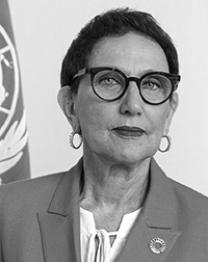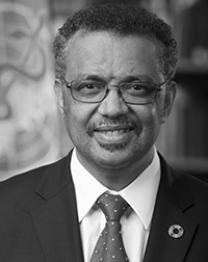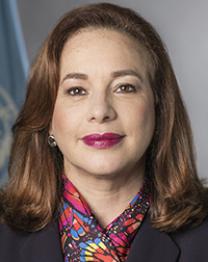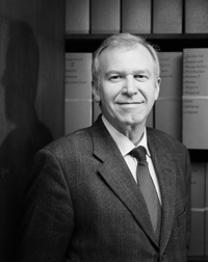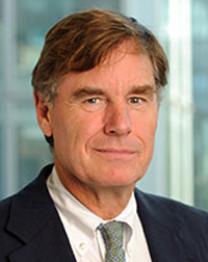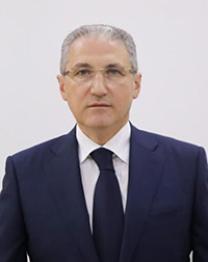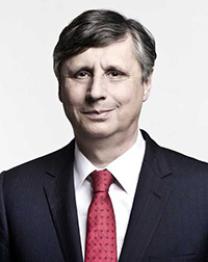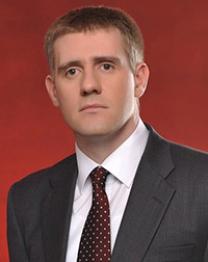FFD4 side event: Unlocking the virtuous circle - from financing for development to financing from development
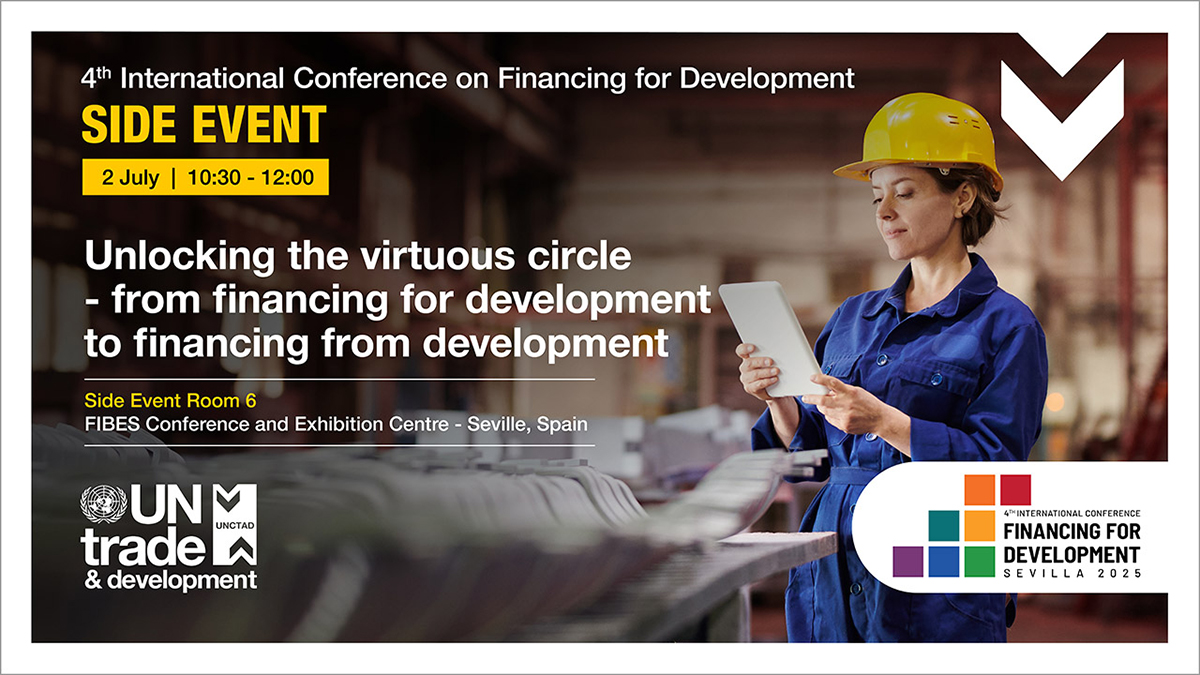
At the Fourth International Conference on Financing for Development in Seville, the case for an actionable and ambitious path for development finance is stronger than ever. In an increasingly constrained and uncertain environment, the commitment to collective action through multilateralism remains a necessary choice in a multipolar world.
At the same time, developing countries are faced with daunting prospects of pursuing development objectives and climate commitments in parallel, all while dealing with the deepening inequalities generated by the climate emergency. However, the climate transition also presents an opportunity to advance national development priorities and actions through the synergistic utilization of climate finance, investment, and trade in accordance with the UNFCCC and the Paris Agreement.
This side event offers a space to examine how external and domestic efforts must be seen as two parts to a whole to ensure growth and sustainable development, while addressing unsustainable debt, and by harnessing the pursuit of climate objectives to maximize investment and trade opportunities in support of growth and development.
The case for fiscal space and growth as preconditions to mobilize development finance in a sustained manner
The first part of the session centers on the idea that external and domestic financing are not independent variables but are deeply interlinked and have mutually reinforcing relationships. Developing countries require external financing to make urgent investments in productive capacities, to boost growth and promote structural transformation and inclusive development.
Guiding questions:
- How can the international community work to reinforce the virtuous circle of fiscal space, investment, growth, and domestic resource mobilization?
- Building on the outcome of FFD4, what measures and mechanisms are needed to advance in the provision of a durable solution to the challenge of debt sustainability in developing countries?
- How can multilateralism promote the conditions for international trade, investment and technology to be drivers of growth and development?
- How can developing countries leverage economic cooperation and integration among developing countries and South-South trade to promote development?
Harnessing the climate transition for inclusive growth and development, from Baku to Belem, through Seville
The second part of the session focuses on the opportunity offered by the climate transition. As climate finance generates financial flows to developing countries, there is a need to ensure national ownership and alignment with countries' Nationally Determined Contributions (NDCs), Nationally Adapted Plans (NAPs), and other national strategies to ensure better synergies between the development and climate agendas.
- What actions are needed to support the mobilization of climate finance that contributes to development and growth in a synergistic manner?
- How can developing countries be supported in attracting climate FDI that also works for inclusive growth and transformation?
- What are the most accessible opportunities for developing countries to foster climate-resilient growth with a focus on green jobs and economic diversification?
Participation
The event is intended for senior government officials, heads of international organizations, policymakers, academics, NGOs, and development finance experts.
Rebeca Grynspan, of Costa Rica, became UNCTAD's eighth Secretary-General on 13 September 2021 and is the first woman to lead the organization.
Prior to her UNCTAD appointment, she was the Ibero-American secretary-general from 2014 to 2021, also the first woman to head the organization. During her mandate, she has coordinated the 22-member Iberoamerican Conference and led four key summits of Heads of State and Government.
In 2010 she was appointed Under-Secretary-General of the United Nations and Associate Administrator of the United Nations Development Program (UNDP) and prior to that was UNDP Regional Director for Latin America and the Caribbean.
Prior to joining the United Nations, Ms. Grynspan served as Vice-President of Costa Rica from 1994 to 1998. She was also Minister of Housing, Minister Coordinator of Economic and Social Affairs, and Deputy Minister of Finance. In 2021 she was named Special International Advisor to the newly created Economic and Social Council of Argentina and invited to join as member of the G20 High-Level Independent Panel on Financing the Global Commons for Pandemic Preparedness and Response.
In addition to her experience as a lecturer and advisor to several international organizations, she has been actively involved in key United Nations initiatives, such as the Millennium Project's Task Force on Poverty and Economic Development and the High-level Panel on Financing for Development.
In 2014 and 2015, she was recognized as one of the 50 leading intellectuals of Latin America. And she was recognized as one of the 100 most powerful women in Central America by Forbes magazine.
Ms Grynspan holds a degree in Economics by the University of Costa Rica and a MSc in Economics by the University of Sussex. She has been awarded a Doctorate Honoris Causa by the University of Salamanca, the University of Extremadura and the European University of Madrid in recognition of her outstanding professional achievements.
Dr Tedros Adhanom Ghebreyesus was elected WHO Director-General for a five-year term by WHO Member States at the Seventieth World Health Assembly in May 2017. In doing so, he was the first WHO Director-General elected from among multiple candidates by the World Health Assembly, and was the first person from the WHO African Region to head the world’s leading public health agency.
Born in the Eritrean city of Asmara, Dr Tedros graduated from the University of Asmara with a Bachelor of Biology, before earning a Master of Science (MSc) in Immunology of Infectious Diseases from the University of London, a Doctorate of Philosophy (PhD) in Community Health from the University of Nottingham and an Honorary Fellowship from the London School of Hygiene and Tropical Medicine.
Following his studies, Dr Tedros returned to Ethiopia to support the delivery of health services, first working as a field-level malariologist, before heading a regional health service and later serving in Ethiopia’s federal government for over a decade as Minister of Health and Minister of Foreign Affairs.
As Minister of Health from 2005 to 2012, he led a comprehensive reform of the country’s health system, built on the foundation of universal health coverage and provision of services to all people, even in the most remote areas.
Under his leadership, Ethiopia expanded its health infrastructure, developed innovative health financing mechanisms, and expanded its health workforce. A major component of reforms he drove was the creation of a primary health care extension programme that deployed 40 000 female health workers throughout the country. A significant result was an approximate 60% reduction in child and maternal mortality compared to 2000 levels.
As Minister of Foreign Affairs from 2012 to 2016, he elevated health as a political issue nationally, regionally and globally. In this role, he led efforts to negotiate the Addis Ababa Action Agenda, in which 193 countries committed to the financing necessary to achieve the Sustainable Development Goals.
Prior to his election as Director-General of WHO, Dr Tedros held many leadership positions in global health, including as Chair of the Global Fund to Fight AIDS, Tuberculosis, and Malaria, Chair of the Roll Back Malaria Partnership, and Co-chair of the Partnership for Maternal, Newborn and Child Health Board.
After taking office as WHO Director-General on 1 July 2017, Dr Tedros initiated the most significant transformation in the Organization’s history, which has generated a wide range of achievements.
Trevor Manuel was the Minister of Finance in South Africa from 1996 to 2009, serving under three presidents. Prior to this, he was the first post-apartheid Minister of Trade and Industry from 1994 to 1996.
He is a member of the Prominent Expert Group appointed by the United Nations Secretary General for the FfD4 process.
María Fernanda Espinosa Garcés is an Ecuadorian academic, diplomat and politician with extensive experience in international affairs and high-level government positions.
She served as the President of the 73rd session of the United Nations General Assembly, becoming the fourth woman and the first from Latin America to hold that role.
Ms. Espinosa has also served as Ecuador's Minister of Foreign Affairs twice, Minister of National Defense, and as the first female ambassador and Permanent Representative of Ecuador to the UN in both New York and Geneva.
Currently, she is the Executive Director of GWL Voices for Change and Inclusion.
Studies
Law and Political Sciences
Career
1985
Parliamentary assistant to CVP Member of Parliament Paul Breyne and in the office of the Flemish minister Paul Deprez
1987-1989
Employed at the Court of Auditors
1989
National Vice-Secretary of the CVP
1991
National Secretary of the CVP
1992
Administrator at the European Union
2001
Head of the CD&V fraction in the Chamber of Representatives
2003
President of the CD&V
2004
Minister-President of the Flemish government
2007
Deputy Prime Minister and Minister for the Budget, Mobility, Institutional Reforms and the North Sea
2008
Prime Minister
2009
Minister of Foreign Affairs and subsequently Prime Minister
2011
Deputy Secretary-General of the OECD
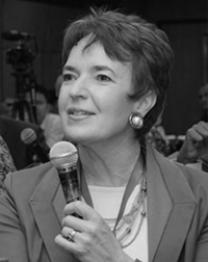
Penelope Hawkins is the acting head of the Debt and Development Finance Branch at UN Trade and Development (UNCTAD).
Previusly, as founder and managing director of Feasibility (Pty) Ltd, she has undertaken some of the leading research projects in the financial sector in Southern Africa, commissioned by regulators, policymakers, and the private sector.
She researches and engages with member country representatives and the broader civil and academic society on sovereign debt, financing for development, illicit financial flows, and financial inclusion.
She is a published economist, with a Ph.D. in economics from Stirling University, Scotland. She has an M.A. in economics (cum laude) from the University of South Africa and a B.A. in economics (honours), a higher diploma in education (cum laude) and a B.Sc., all from the University of the Witwatersrand.
Manfred Schepers is the founder and CEO of ILX Management, an Amsterdam-based development finance asset manager and has 30+ years of experience in both development finance and international capital markets. He has served as Vice President and Chief Financial Officer at the European Bank for Reconstruction and Development (EBRD) and led the Bank’s Institutional Investment Partnership program.
He has also been a member of the Investment Committee of the EU’s European Fund for Strategic Investments (EFSI) and currently serves on the Supervisory Boards of Van Lanschot Kempen and the Nederlandse Waterschapsbank.
Manfred holds an MSc and a BSc in Development Economics from the London School of Economics.
Mr. Mukhtar Babayev was the President of COP29, the 2024 United Nations Climate Change Conference, which took place in Baku, Azerbaijan.
He has served as Azerbaijan's Minister of Ecology and Natural Resources since 2018.
Prior to his ministerial role, he held various positions within Azerbaijan's state oil company, SOCAR.



